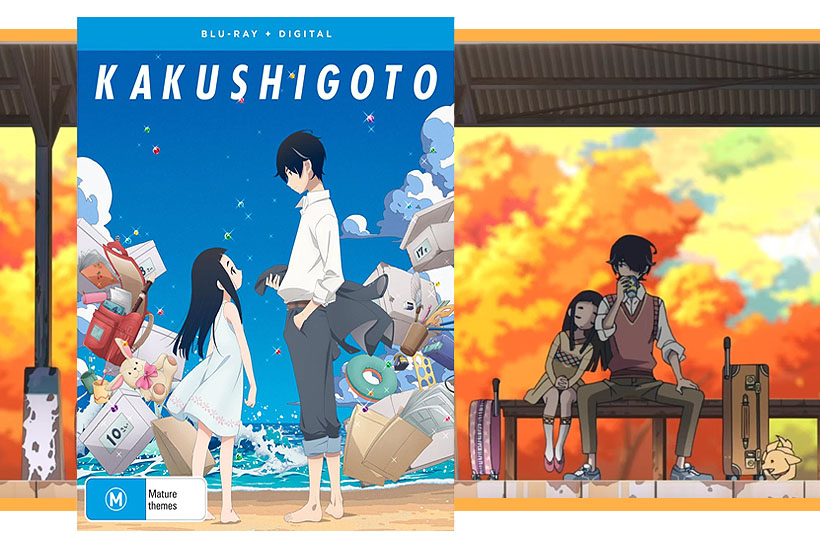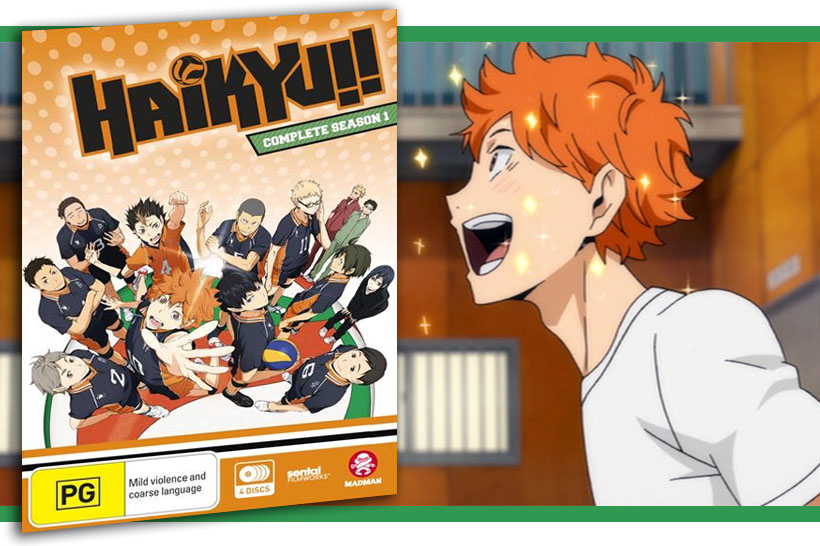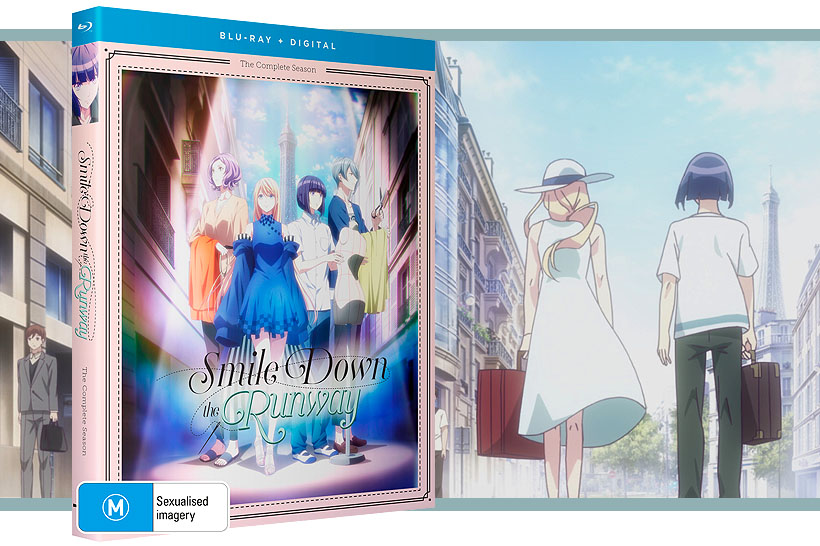Kakushi Goto loves his ten-year-old daughter Hime more than anything else in the world. However, he’s keeping a terrible secret from her, one that Hime must never discover – that he is a lewd manga author. In his desperation to make his daughter think that he is just a regular office worker, Kakushi wears a suit when he leaves the house (only to change on the way to his studio) and forbids his editors from making house calls. Kakushi’s over protectiveness of Hime and his often persistent cluelessness land him in a whole heap of awkward and hilarious situations as he tries to keep his work and personal life separate.

Kakushigoto (a fantastic Japanese double entendre which can mean “secret” or “the job of drawing”) is a lively and hilarious series with a surprising amount of sincerity. Framed within the narrative device of an 18-year-old Hime recounting her childhood, each episode of the show is made up of a series of smaller skits alongside an overarching issue, such as Hime wanting a dog or Kakushi accidentally ending up in a four-way date. The foundations of Kakushigoto’s comedy are based on its really solid situational humour which continuously places Kakushi in circumstances where he either worries about, puts plans in place to prevent, or does damage control in real time to stop Hime discovering his job as a lewd manga author. It’s the kind of humour that has excelled in manga and anime recently, with highly specific concepts explored through situational skits (à la The Way of the House Husband and Spy x Family) and works perfectly in a show filled with comedic misunderstandings and over-exaggerated physical and reactionary expressions.
As well as being an expressive, high-energy comedy, Kakushigoto also has a frankly surprising amount of sincerity and engaging depth to its characters. Kakushi’s love for his daughter is never in doubt, and he gets himself into trouble in his attempts to look out for Hime just as often as he does when he is going to wild lengths to keep his job a secret from her. Kakushi’s studio staff are also incredibly endearing, forming a supportive comedic cast who put up with their boss’ demands and charades to hide his job from Hime, while also having their own motivations and career hopes. Hime also plays a massive role in the series outside of being kept in the dark about her father’s job. She is a conscientious kid, always worried about the household, money, and their lifestyle, pushing herself to clean the whole house or foregoing her desire to have a dog if it means she relieves the pressure on her father. It gives the show a lot of heart and extends her role beyond that of an obstacle for her father to keep secrets from, and into that of a young kid who has her own anxieties – a kid who is trying to protect her father in her own way, just as he is attempting to protect her in his.
This angle and the framing of the series lends itself to some really neat set-ups and peeks into the lives of the characters beyond the comedy sketches. As a result, Kakushigoto nails the balance between gut busting comedy and quieter character drama, supported by a versatile visual style whose simplicity and charm can depict both moments of expressive over-the-top hilarity and the quieter moments between father and daughter.

The hardest part of recommending a good series is perhaps not wanting to give too much away lest it ruin the experience for someone who has not watched it before. I ran into this problem when writing about Id: Invaded, and am facing a similar issue with Kakushigoto. So, to avoid giving away what I would consider meaningful spoilers of what the series has to offer, I will instead write a little bit about some of the fun things one can look forward to if they were to pick up the series.
The timing and delivery of the comedy in Kakushigoto is excellent – comedic reactions are appropriately deadpan or high intensity depending on the situation, and both the English and Japanese voice casts have extremely good energy and managed to get an equal number of laughs from me. The show’s focus on manga production also lends itself to plenty of comedic material (and interesting facts and titbits about creating weekly manga), including insights and jokes scattered across the series on the role of editors, proofing, existing properties (such as Jujutsu Kaisen) and background artists, which worked really well with the comedic tone of the series as Kakushi and his team attempted to meet deadlines and attend fancy end-of-year company parties. The focus on Kakushi’s job as a manga artist gives the series a fun gimmick to home in on and use as a source for plenty of its comedy, all while balancing this with the aforementioned moments of sincerity with his daughter Hime. This keeps episodes consistently engaging as the comedy is given space to do its thing but doesn’t overstay its welcome – allowing a good balance of drama and humour throughout Kakushigoto without any tonal whiplash.

Kakushigoto is energetic, hilarious, and fascinatingly sincere in its depiction of a father and daughter each trying to do what they believe is best for the other. The result is a series with never a dull moment, and a surprising abundance of comedy and drama to unearth as it progress. I have no caveats to offer, grab a copy of Kakushigoto and enjoy.
A review copy was provided by Madman Entertainment to the author for the purpose of this review.
© Kouji Kumeta, KODANSHA/KAKUSHIGOTO Committee.





